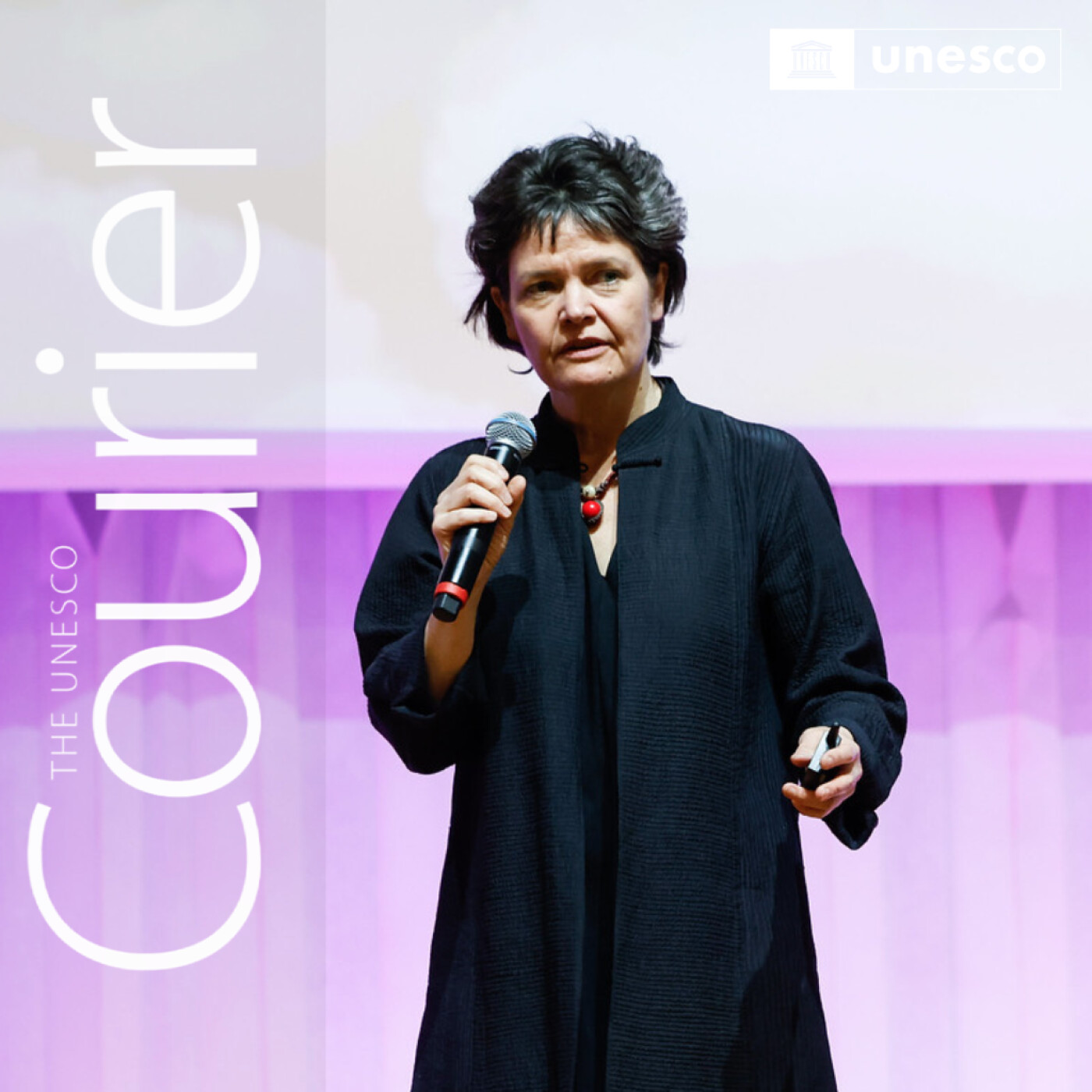The UNESCO Courier

The UNESCO Courier
Podcast Description
Since 1948, The UNESCO Courier has followed its initial mission: to be a window onto the world. Beyond the slogan, this multilingual magazine constantly seeks out different viewpoints and approaches on global issues, giving voice to scientists, artists, writers, and thinkers from all over the globe. Le Corbusier, Isamu Noguchi, Chucho Valdès, Joan Miró, Kailash Satyarthi, Denis Mukwege and Yuval Noah Harari are some of the many leading personalities who have appeared in The Courier – the only international magazine to cross the iron curtain during the Cold War. Topics are never treated in isolation, but through a multiplicity of perspectives from all regions of the world.
In this podcast series we explore in depth a variety of global issues that matter today and tomorrow. Drawing on sound archives, magazine articles, and exclusive interviews, we tell the story of a constantly changing world. From culture to education, science and much more, this podcast will be your window onto the world.
Hosted by Ausha. See ausha.co/privacy-policy for more information.
Podcast Insights
Content Themes
The podcast focuses on various topics including culture, education, and science, with episodes like 'The Nubia campaign - when UNESCO moves mountains' which discusses international efforts in heritage preservation and the implications of shared cultural heritage.

Since 1948, The UNESCO Courier has followed its initial mission: to be a window onto the world. Beyond the slogan, this multilingual magazine constantly seeks out different viewpoints and approaches on global issues, giving voice to scientists, artists, writers, and thinkers from all over the globe. Le Corbusier, Isamu Noguchi, Chucho Valdès, Joan Miró, Kailash Satyarthi, Denis Mukwege and Yuval Noah Harari are some of the many leading personalities who have appeared in The Courier – the only international magazine to cross the iron curtain during the Cold War. Topics are never treated in isolation, but through a multiplicity of perspectives from all regions of the world.
In this podcast series we explore in depth a variety of global issues that matter today and tomorrow. Drawing on sound archives, magazine articles, and exclusive interviews, we tell the story of a constantly changing world. From culture to education, science and much more, this podcast will be your window onto the world.
Hosted on Ausha. See ausha.co/privacy-policy for more information.
What if 20th-century economic models no longer fit today’s world? British economist Kate Raworth thinks it’s time for a rethink–and she’s sparking the shift with doughnut economics, a bold framework already shaping new policies in cities worldwide.
Building on the work of thinkers like Herman Daly, who questioned endless growth in the 1980s, Kate Raworth’s doughnut-shaped model outlines a space where human needs are met without breaking the planet’s limits. With Earth scientists warning that we’re nearing critical environmental tipping points–from climate change to biodiversity loss–the need for a new economic compass has never been clearer.
From a model that offers a healthier vision of prosperity to the outdated economic systems we’ve inherited, Kate Raworth invites us to rethink economics through the lenses of equity, ecology, and indigenous wisdom. A shift from growth for its own sake to economies that truly thrive.
In March 2025, The UNESCO Courier team sat down with Kate Raworth at UNESCO in Paris, on the sidelines of the University of the Earth event, to explore what this model could mean for the future of progress.
Curious what a doughnut has to do with economics? Hit play and find out.
An episode by Katerina Markelova, produced by Emmanuel Rudowski, with the voice of François Wibaux.
Photo: © UNESCO/Marie ETCHEGOYEN
https://courier.unesco.org/en/subscribe
Hosted on Ausha. See ausha.co/privacy-policy for more information.

Disclaimer
This podcast’s information is provided for general reference and was obtained from publicly accessible sources. The Podcast Collaborative neither produces nor verifies the content, accuracy, or suitability of this podcast. Views and opinions belong solely to the podcast creators and guests.
For a complete disclaimer, please see our Full Disclaimer on the archive page. The Podcast Collaborative bears no responsibility for the podcast’s themes, language, or overall content. Listener discretion is advised. Read our Terms of Use and Privacy Policy for more details.